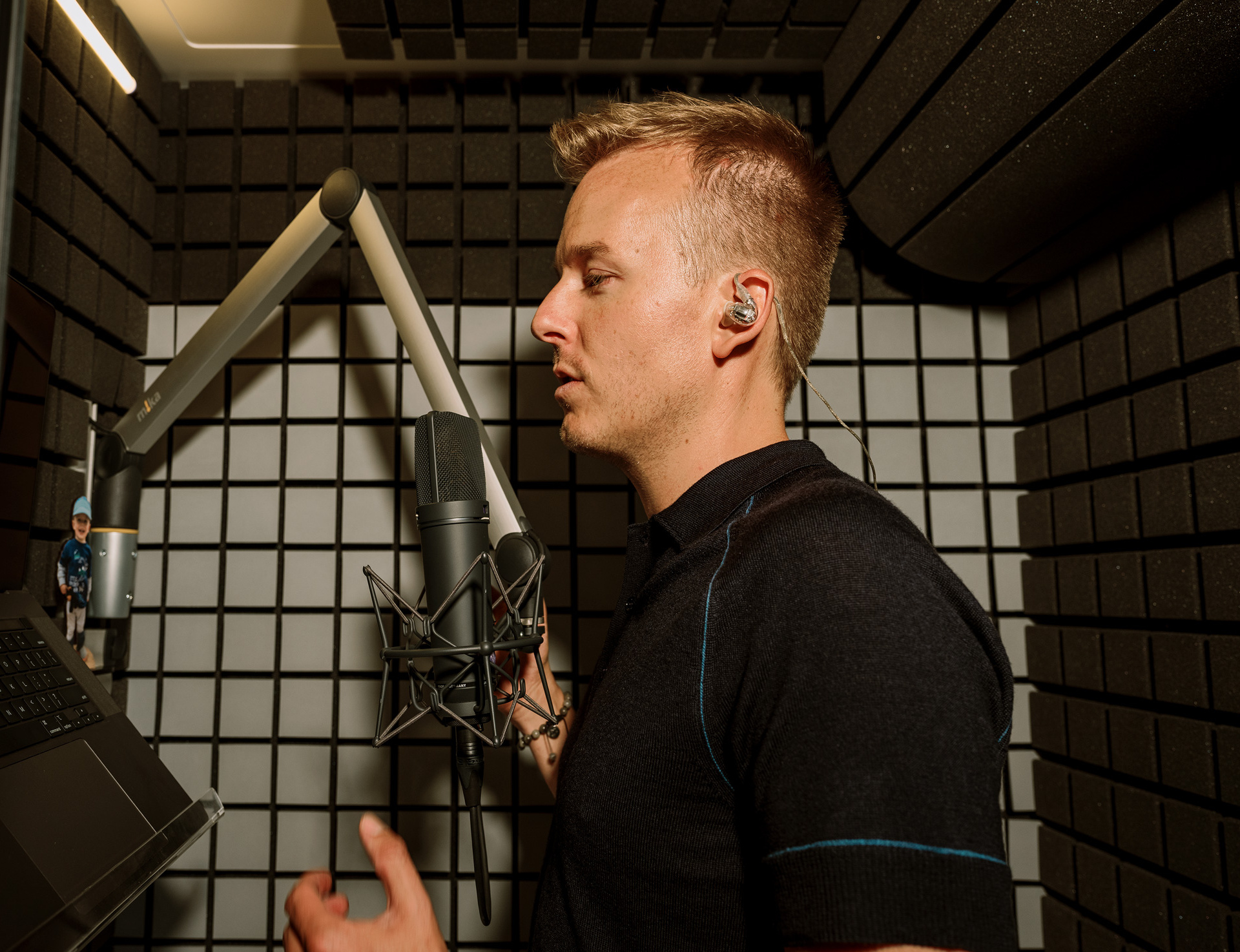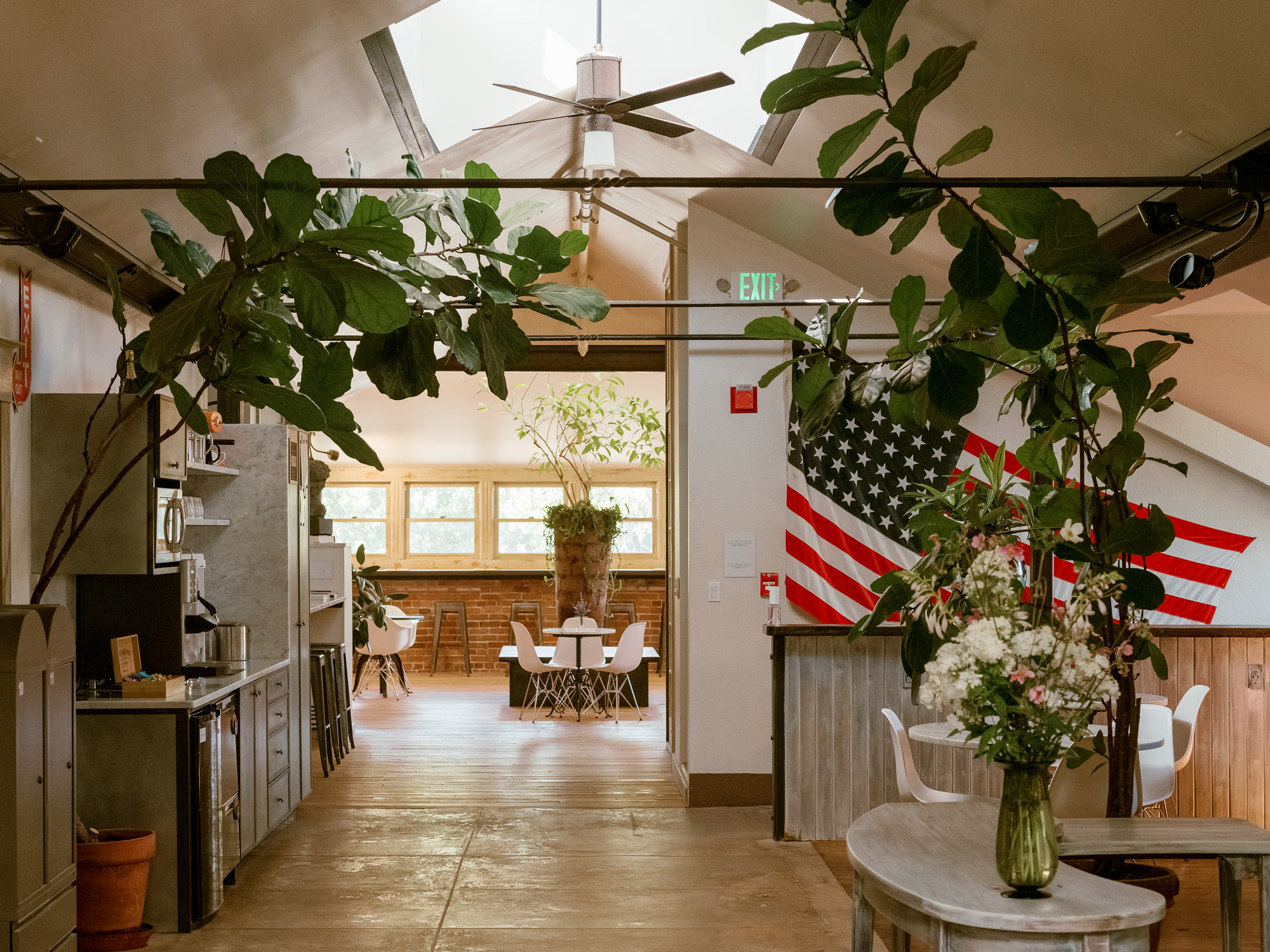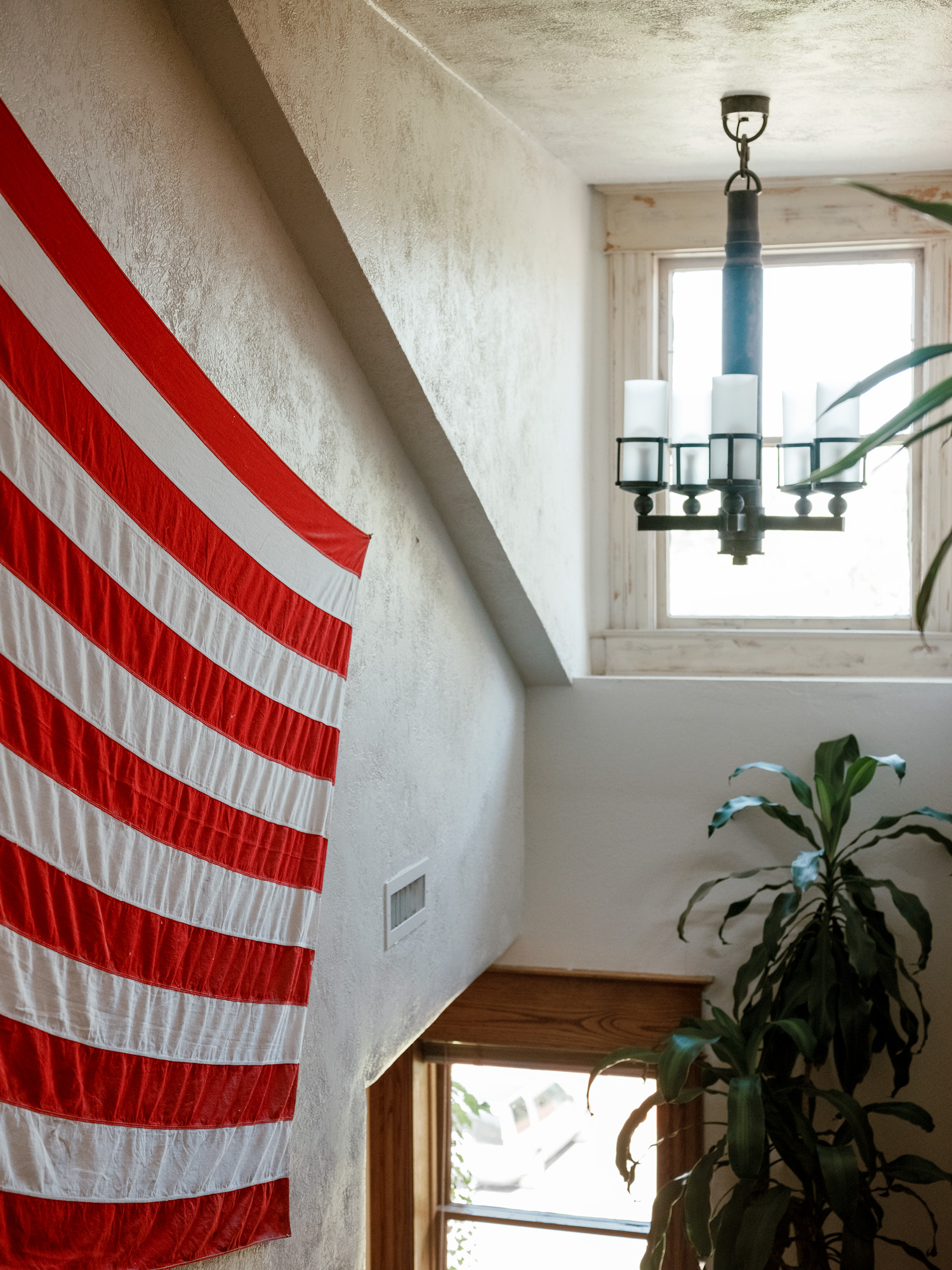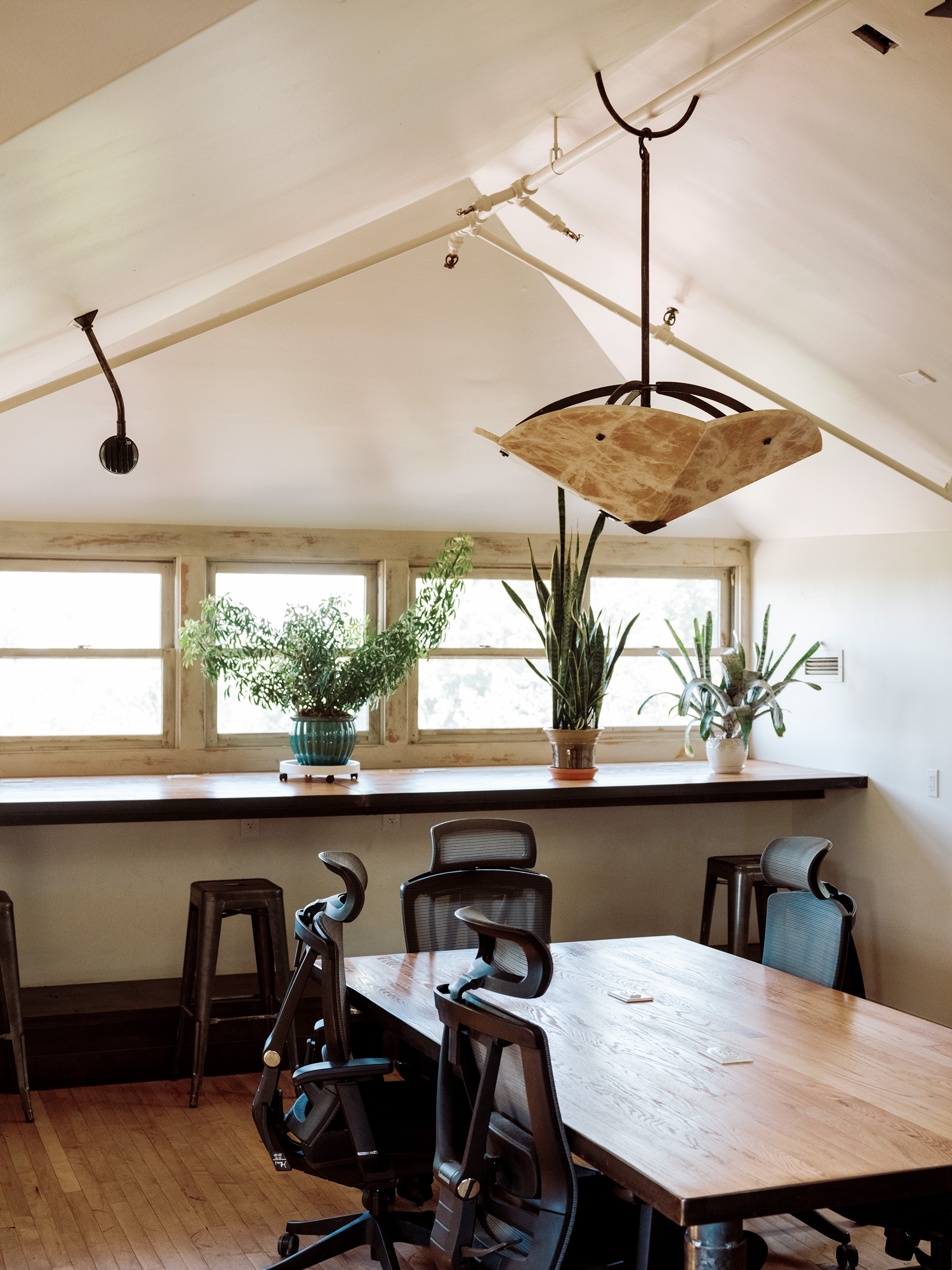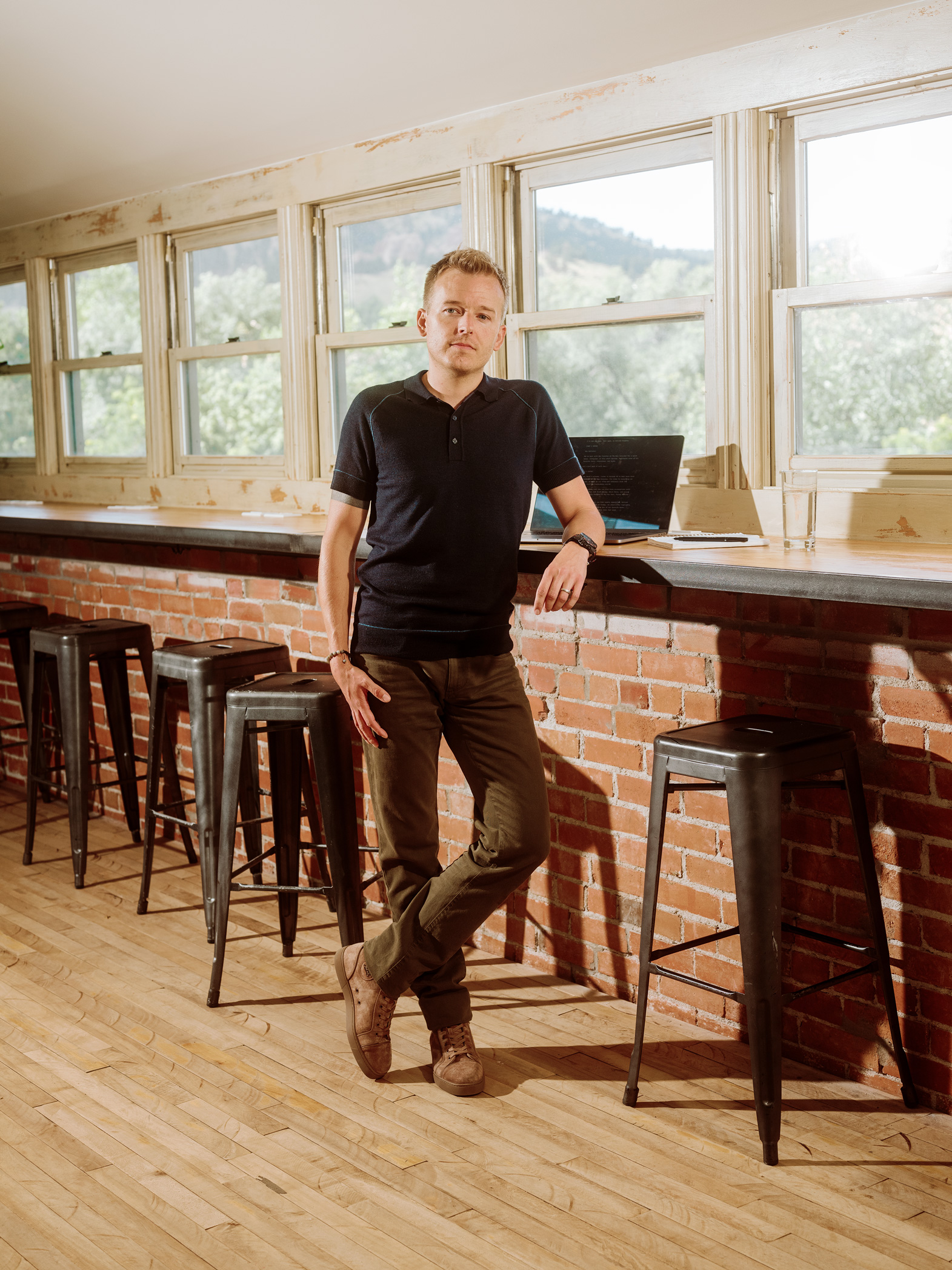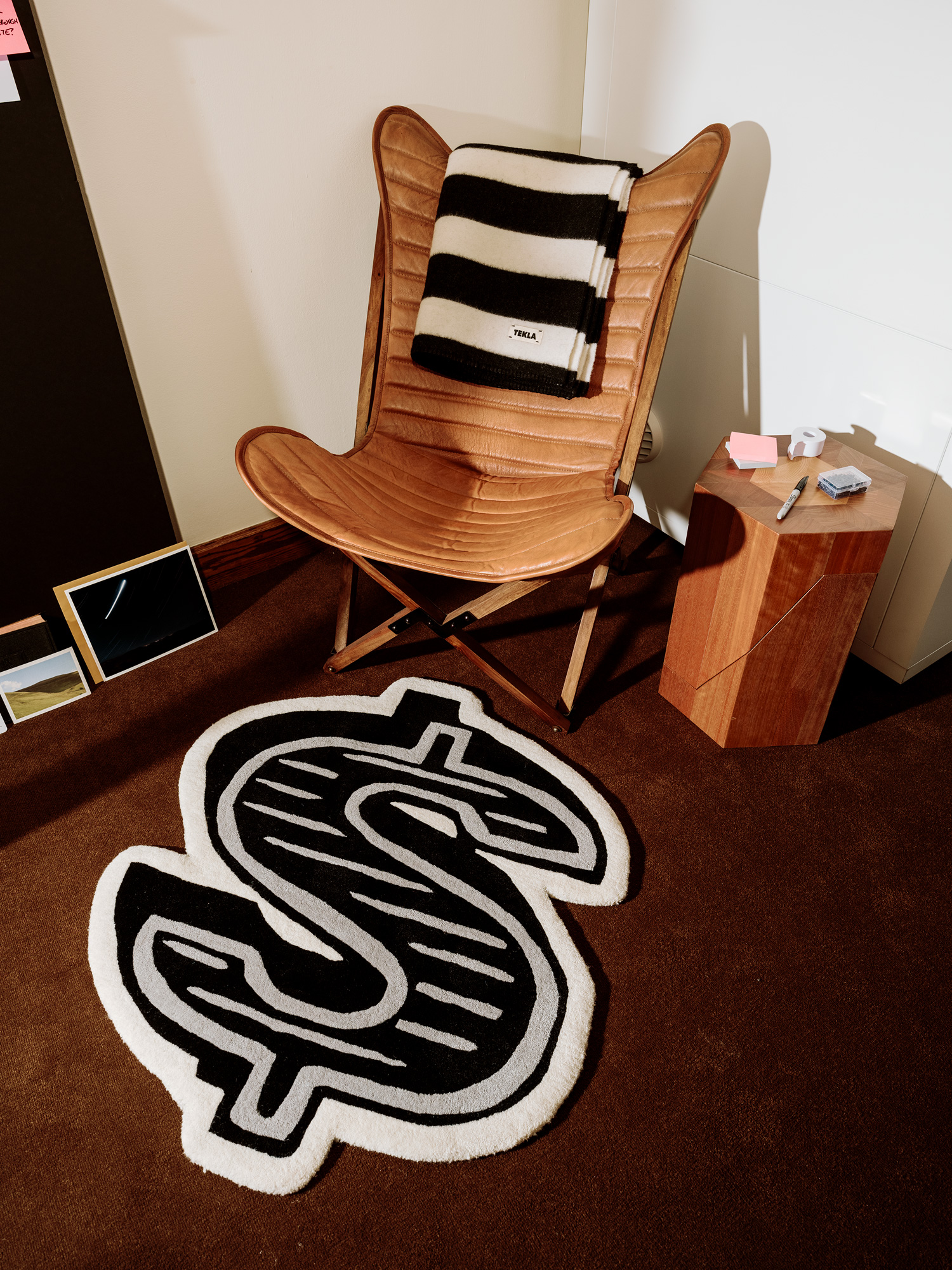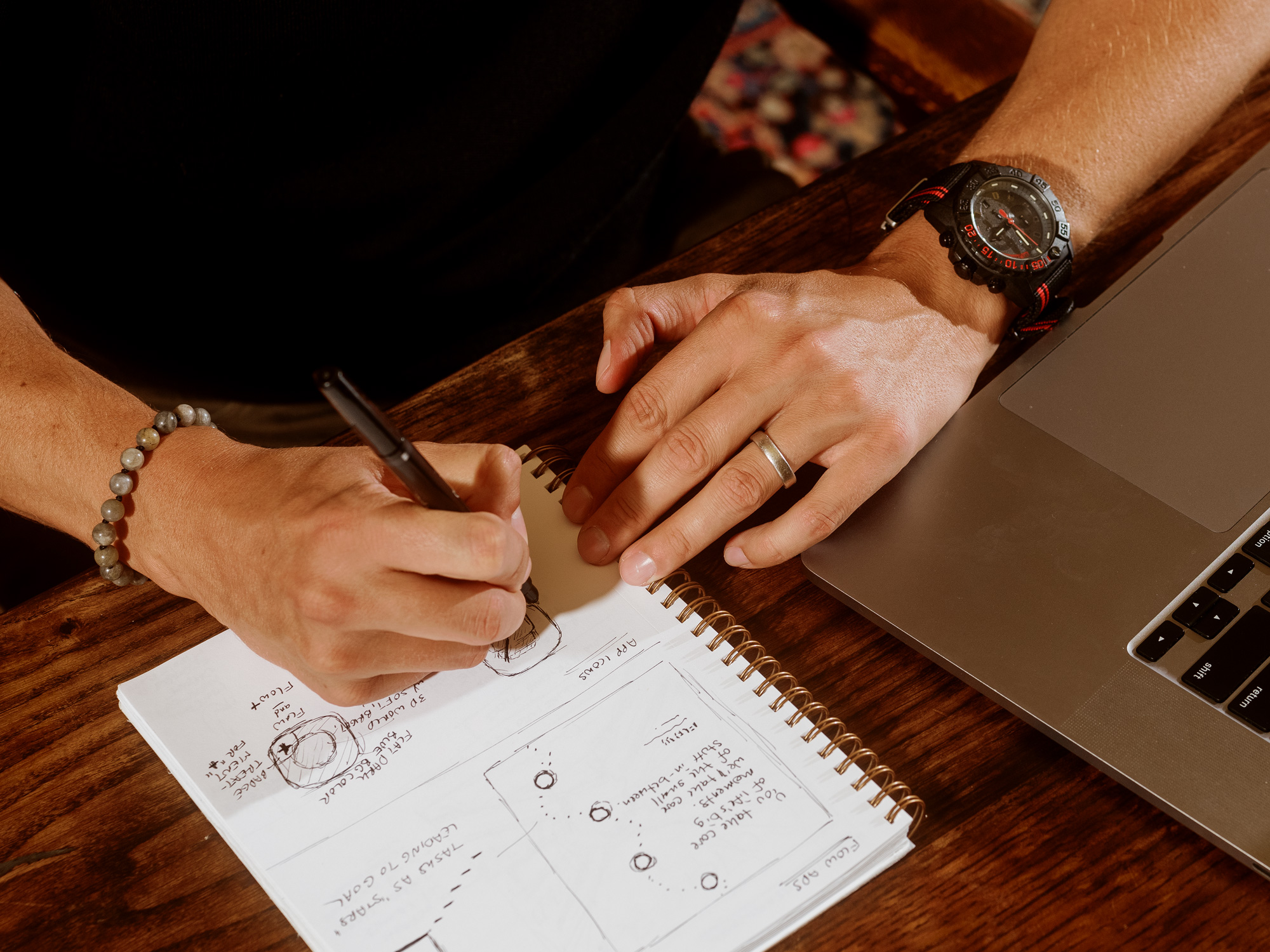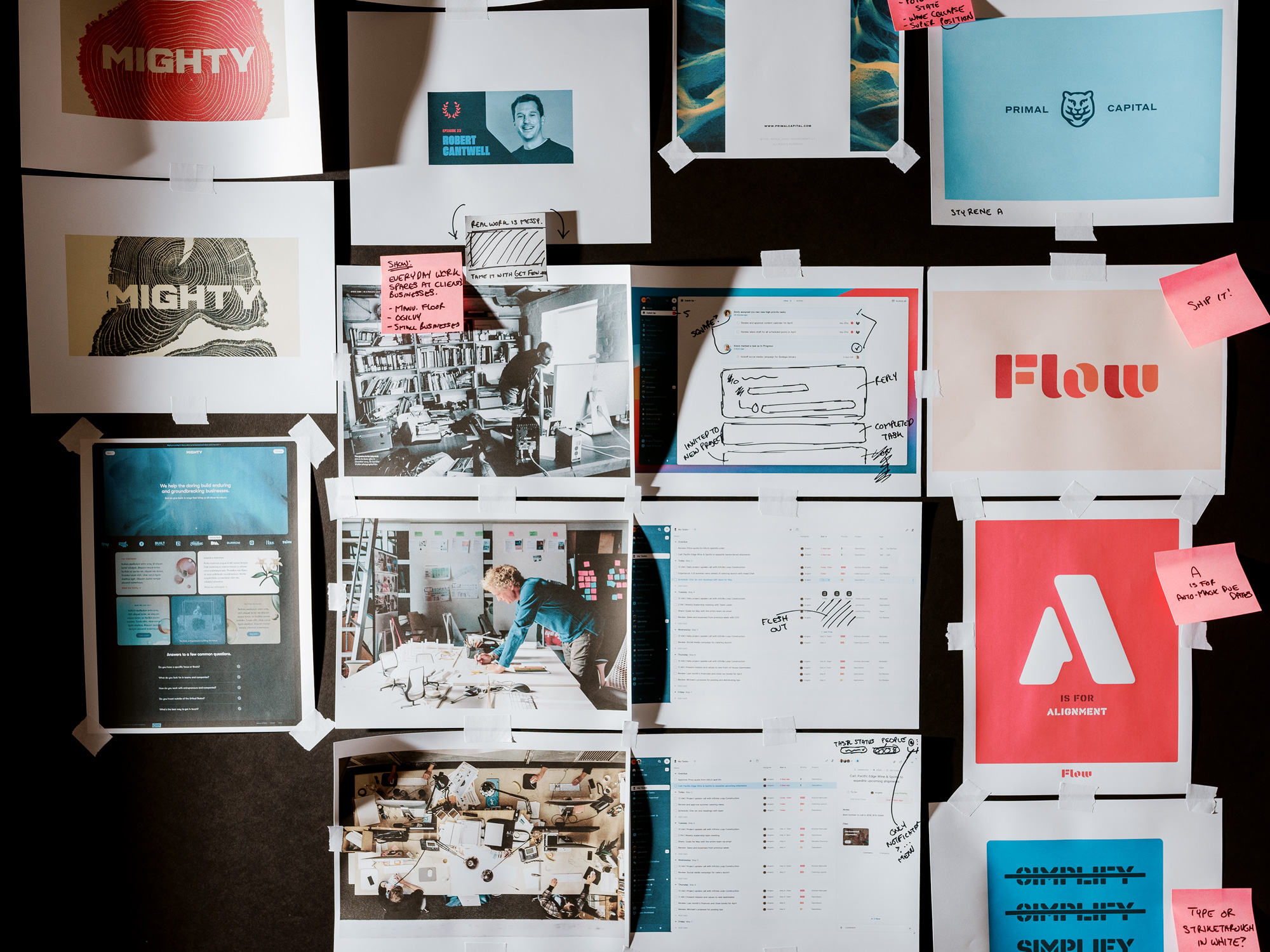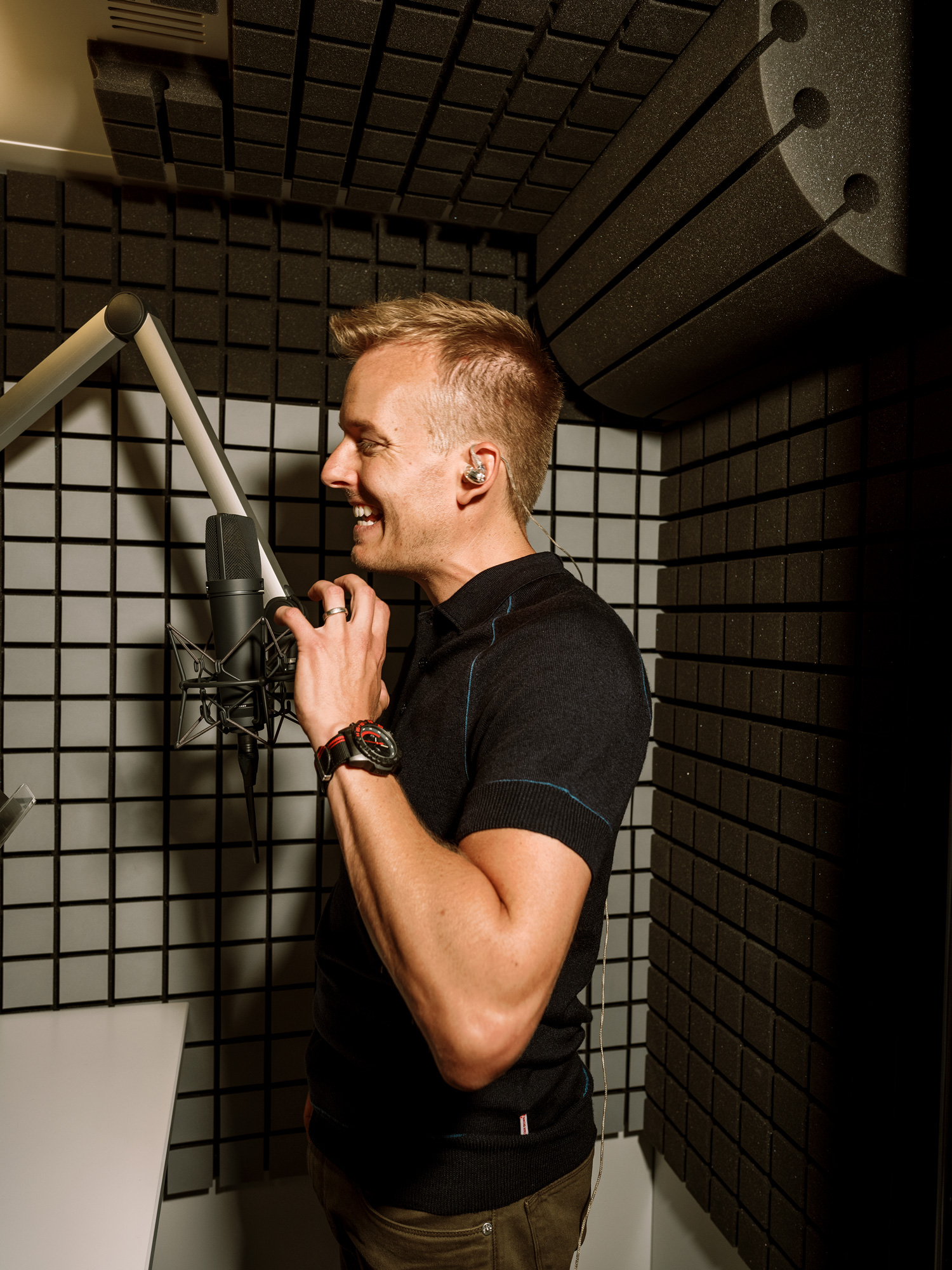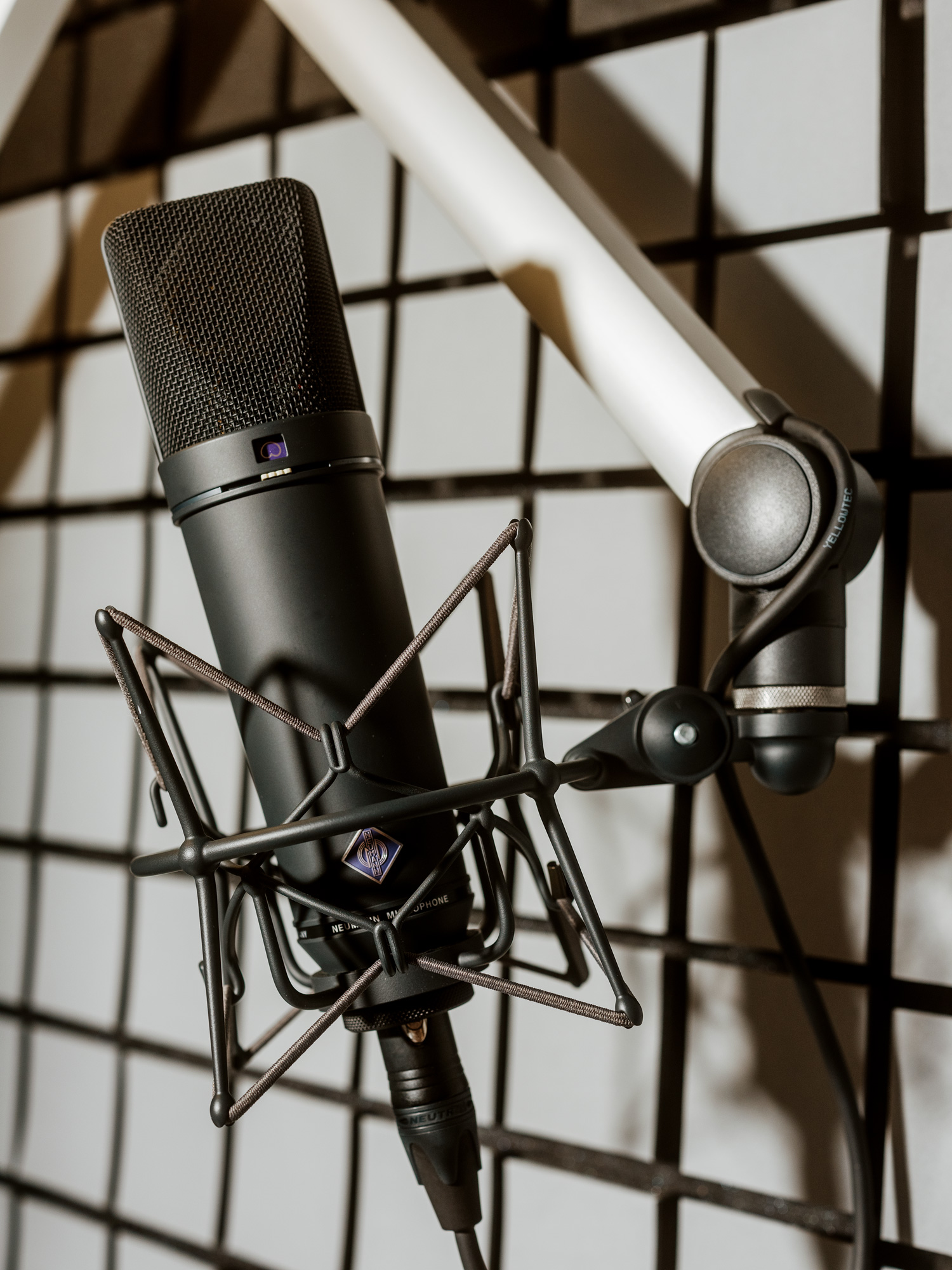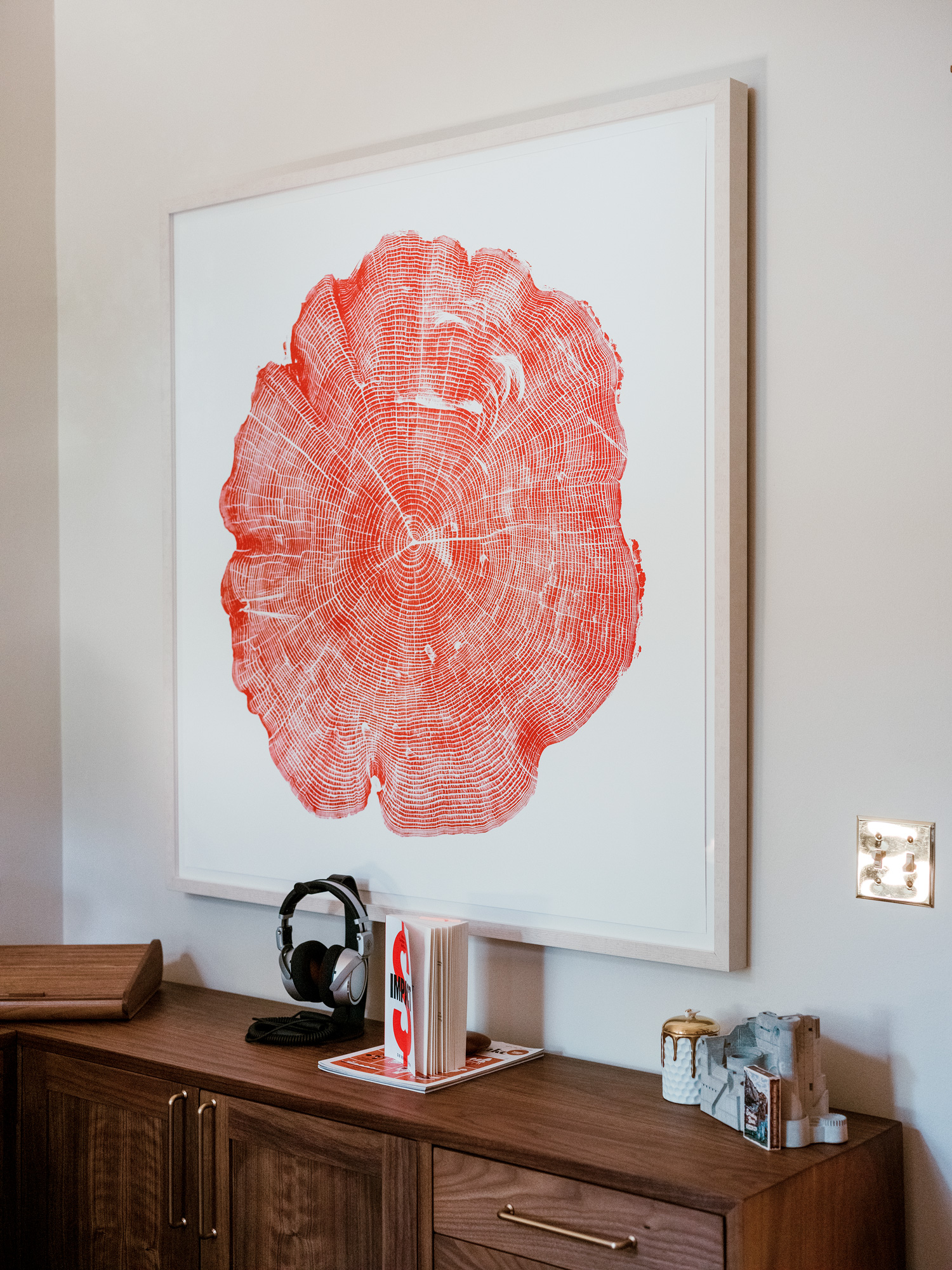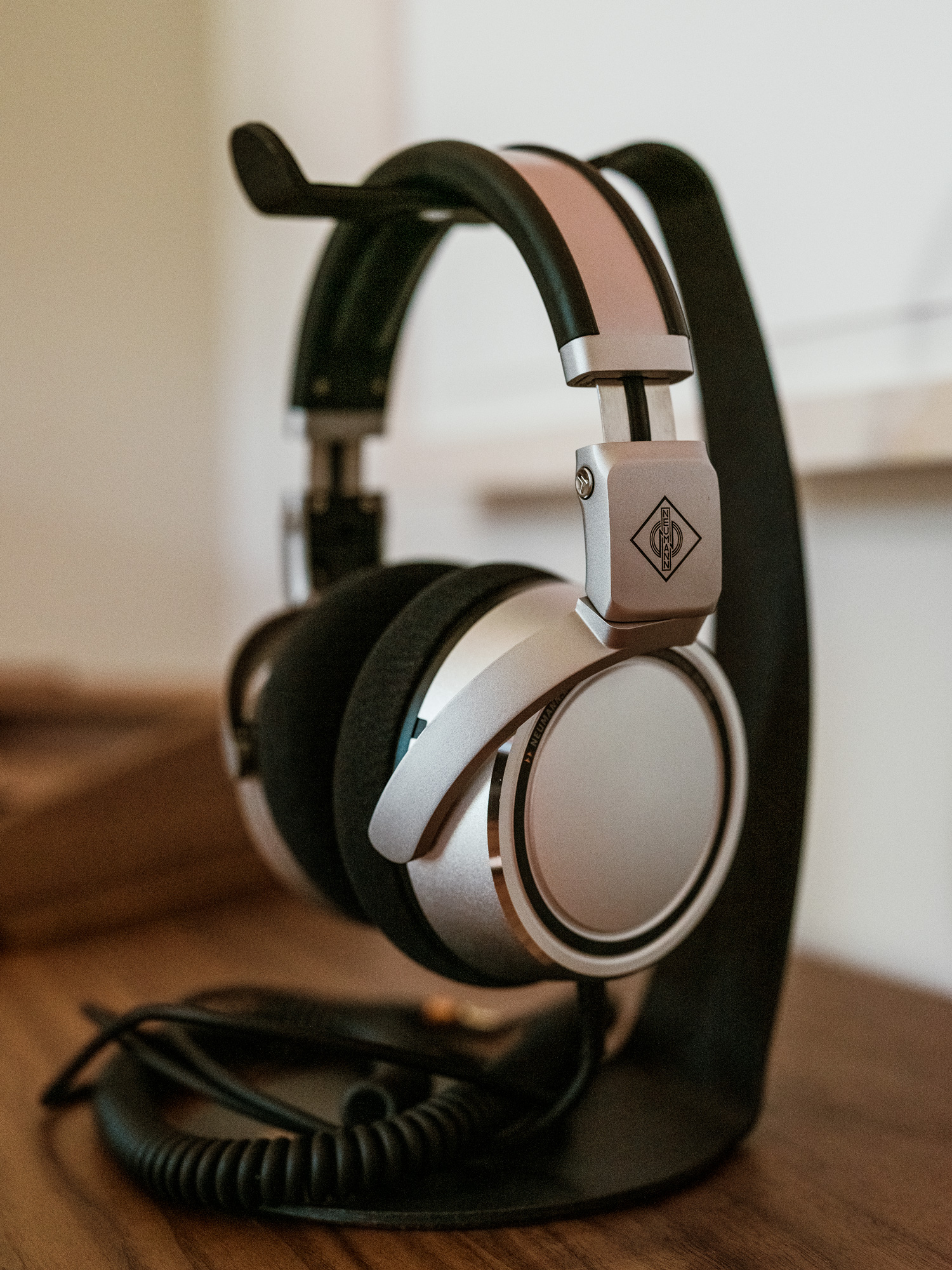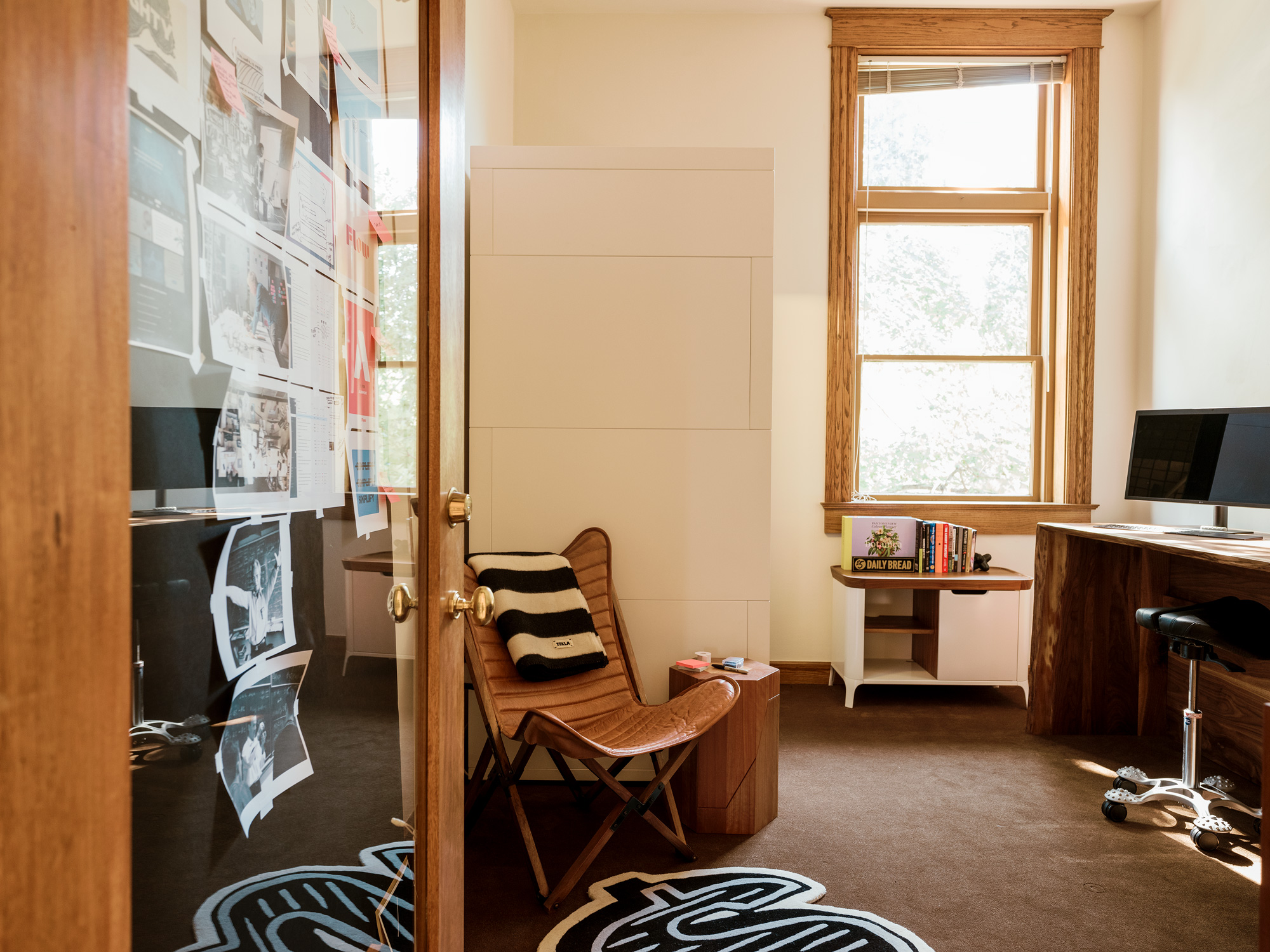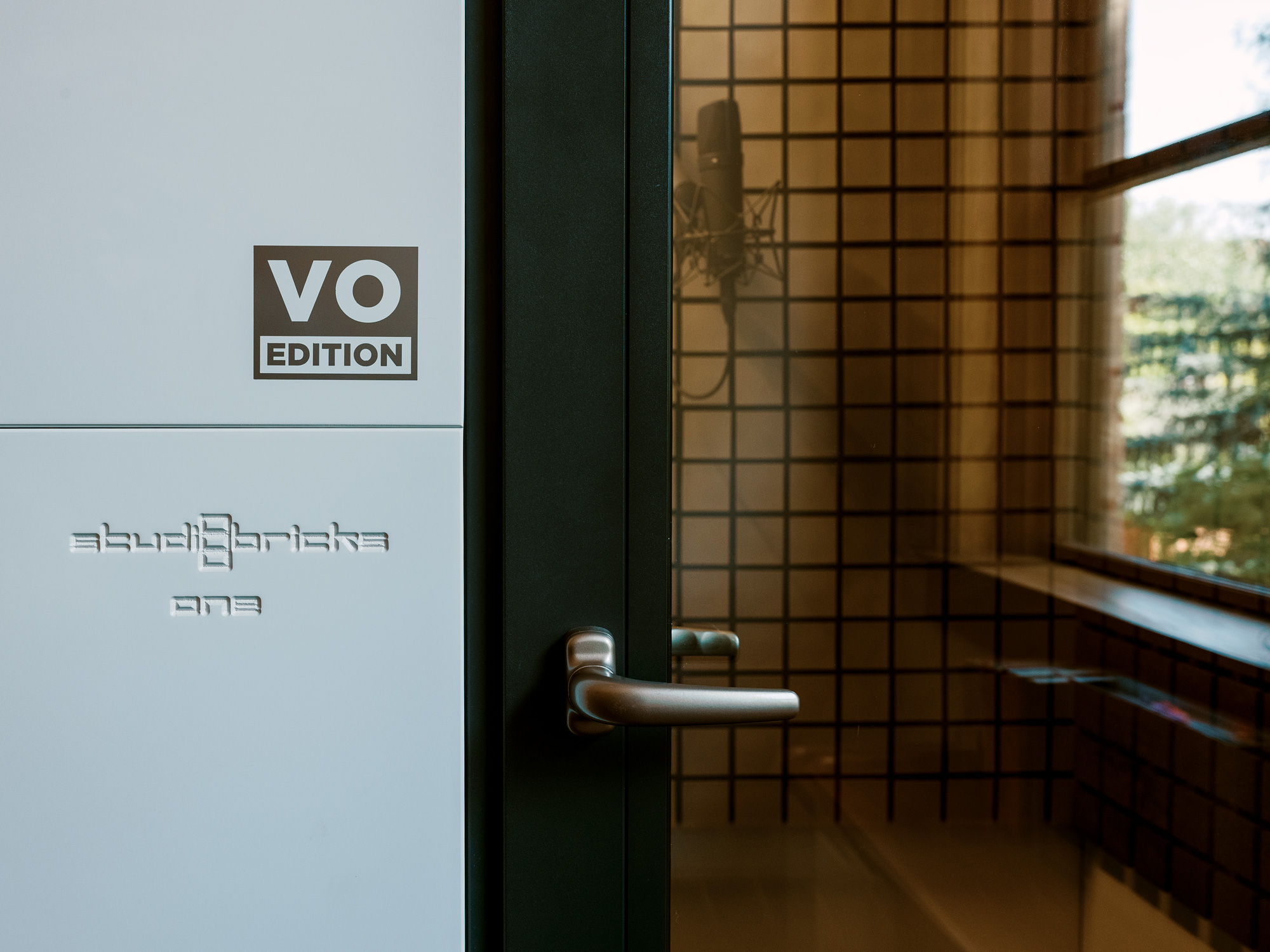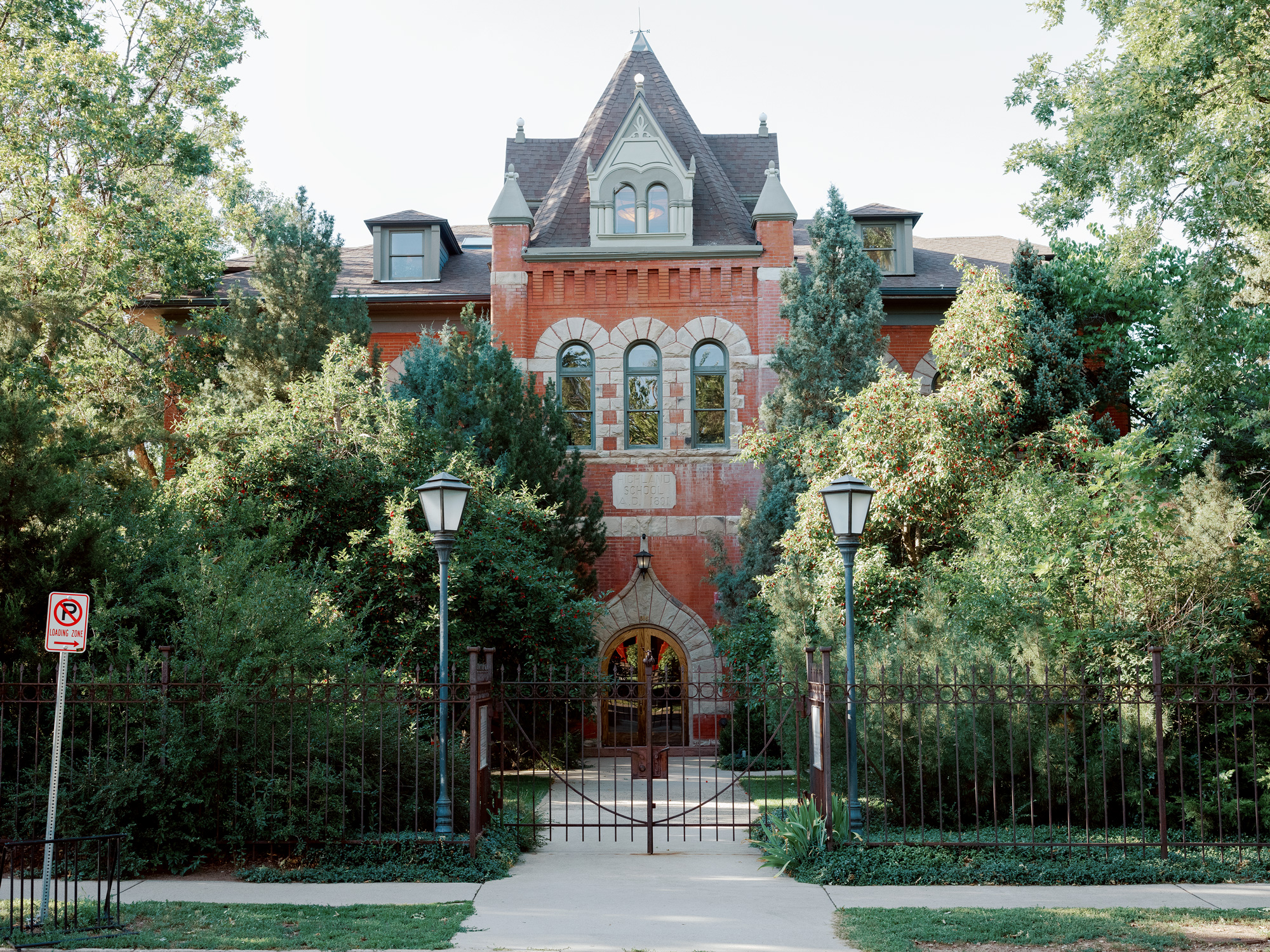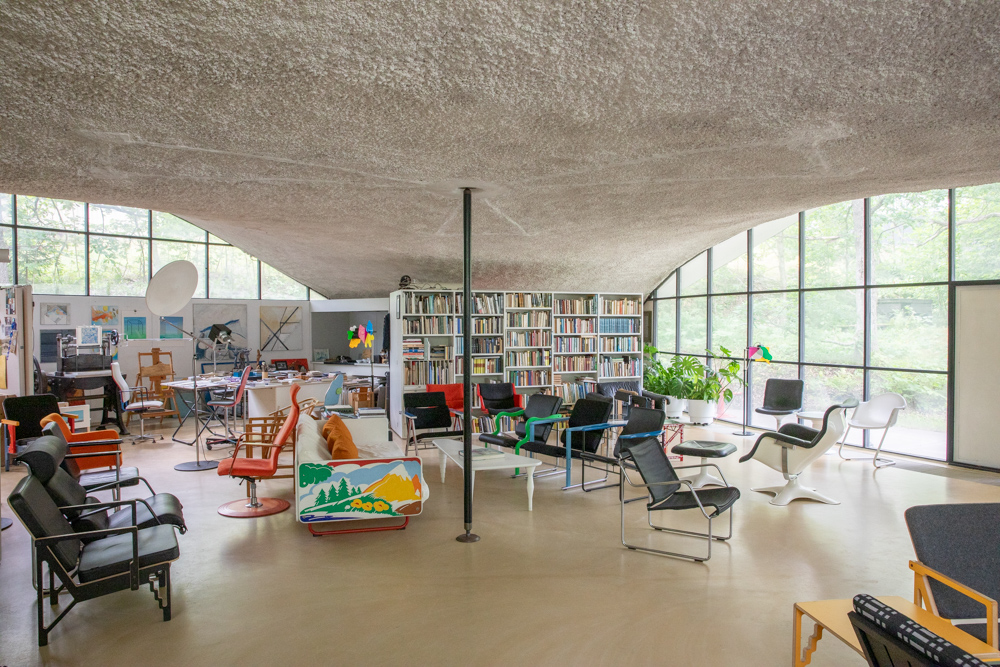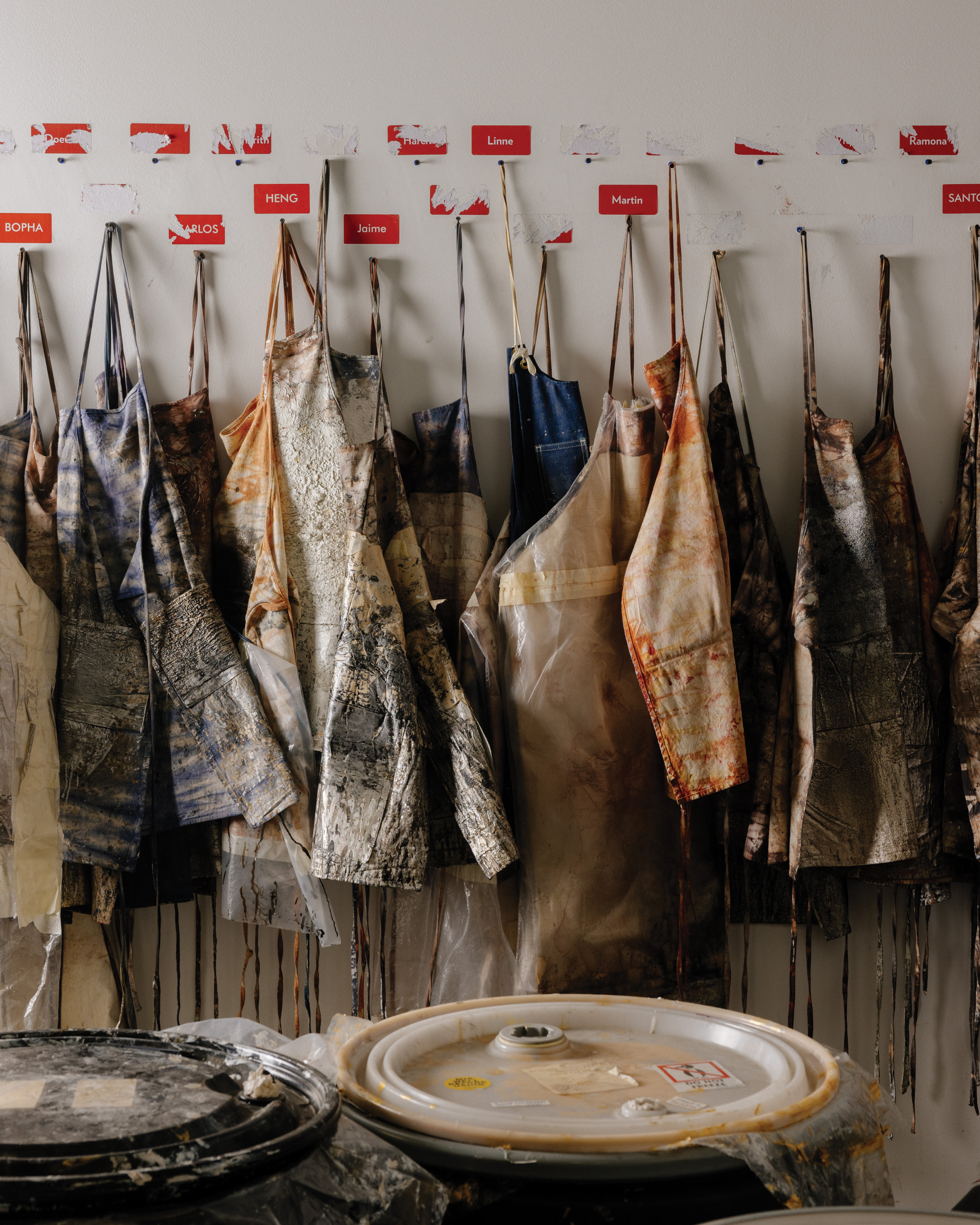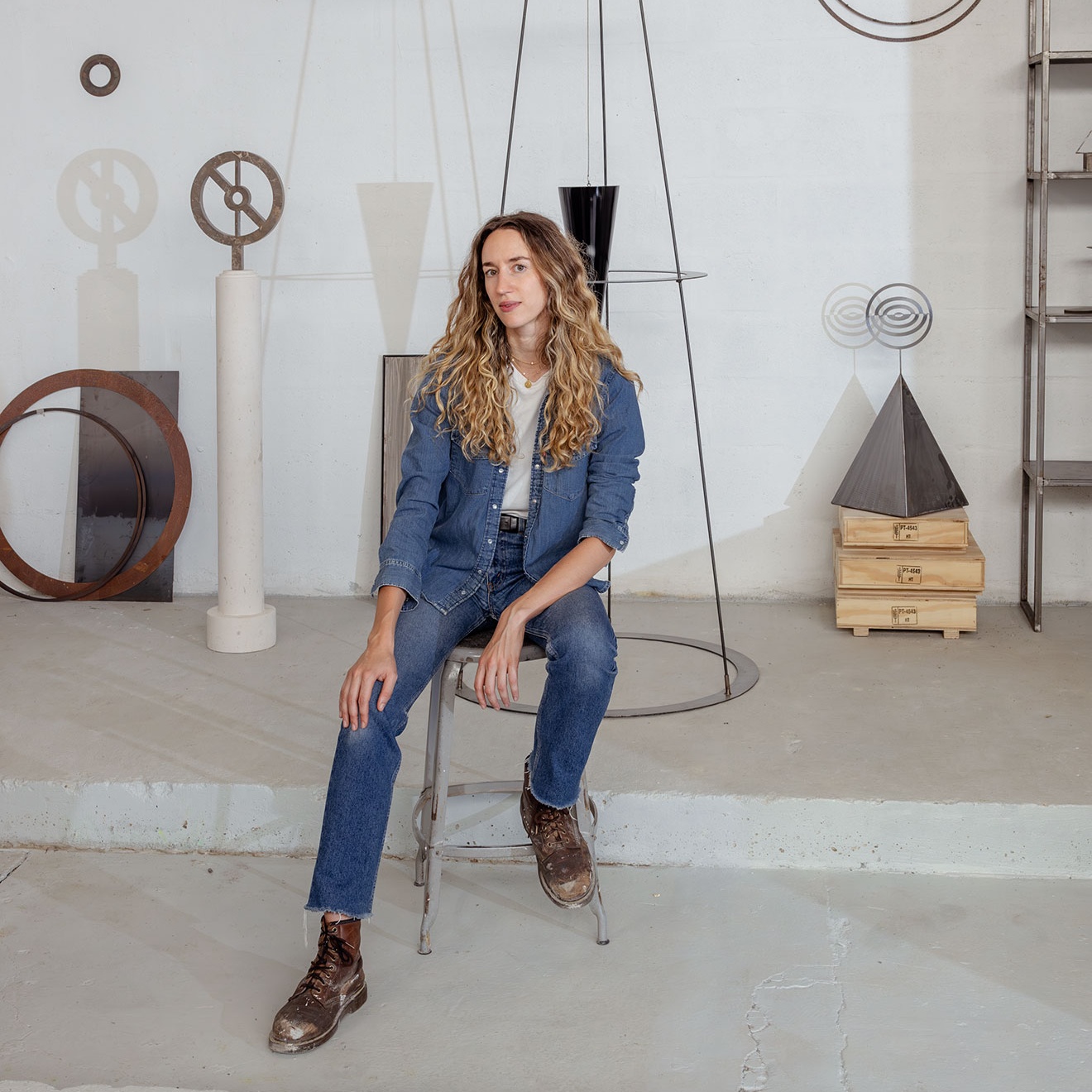Behind the Mic goes behind the scenes to photograph some of the most exciting podcast studios across the world, documenting the creative and production processes as well as the technology used to bring each episode to life.
When Daniel Scrivner interviewed Oscar and Emmy award-winner Howard Berger for his podcast Outlier Academy, he was itching to know how the special effects artist—known for his work on Django Unchained and The Walking Dead—helps create such distinct, yet accessible worlds.
Daniel also asked Howard about his work on The Chronicles of Narnia: The Lion, the Witch and the Wardrobe, and how he assisted in designing a classic movie that appeals to a wide audience, while also creating an incredibly particular film, aesthetically speaking. For Howard, the key to understanding this question came after he asked the movie’s director, Andrew Adamson, what inspired him from his memories reading the book.
- Daniel’s spacious “Outlier Academy” studio is a home away from home in Boulder, with plentiful light and greenery. Photo by Matthew DeFeo
- Photo by Matthew DeFeo
- Photo by Matthew DeFeo
“There’s no preconceived notions,” Howard told Daniel in his episode—the podcast’s third. “Andrew is remembering how he felt when he was 10 years old, sick as a dog in bed for months reading all these C. S. Lewis books.” Perhaps that’s what gave the film its comforting but fantastic dream-like quality.
On Outlier Academy, Daniel interviews professionals at the top of their fields, often entrepreneurs and investors. He asks how his guests mastered their crafts, as he digs deep into their mindsets on how they traveled the road to success. He chats with them about everything from career advice to discovering happiness at work.
- Daniel Scrivner has a background in design and investing—and a growing appreciation of podcasts. Photo by Matthew DeFeo
- Daniel’s appreciation of design—and money—bleeds into most of his work. “Outlier Academy” celebrates one year in December 2021. Photo by Matthew DeFeo
December 8, 2021 marks Outlier Academy’s one-year anniversary since the first episode’s release. Daniel created the project in his Boulder, Colorado office, where he has his own comfortable studio and podcast setup. Though he lives 30 minutes outside of town, his centrally located workspace offers stronger Wi-Fi and a nice outlet for work.
“It started from a place of scratching my own itch,” Daniel says, having been an investor himself with experience in the design world; he worked for Square when the digital payment company had just 50 employees, and he built out the design team that reported to Jack Dorsey.
- “Outlier Academy” host Daniel Scrivner puts a lot of time into sketching out his shows, including a pre-interview with guests. Photo by Matthew DeFeo
For Outlier Academy Daniel started simple: He contacted people from his network, emailing and sending hand-written notes to some he admired but had never met. He’d spent a lot of time listening to other business and investing podcasts, and he realized he was often hearing the same people interviewed again and again—the already-famous industry contributors. For his podcast, he wanted to highlight early-stage companies and people instead, getting them on-air maybe even two or three years before they’d become well-known in their fields. “I find a lot of value in learning from new voices and people doing things I’ve never heard of before,” he says.
After investing in early-stage companies himself, Daniel became CEO of Flow, a project management website for teams. As a bootstrapped company competing with larger venture capital players, Flow had to get creative with advertising. They partnered with Lemonpie, a podcast PR and production agency for brands, who helped them do an interview tour on several podcasts focusing on productivity, design, and business.
- Daniel is also CEO at Flow, a project management website for teams. His experience there showed him the need for better podcast interviewers. Photo by Matthew DeFeo
Though it was the most effective and affordable way to reach hundreds of thousands of people, Daniel recounts negative experiences on some of these podcasts, where he felt hosts hadn’t prepared for their conversations. “I saw that the bar was really low,” he says. He wanted to do things differently and make sure his guests felt comfortable. For him, that mean starting with a pre-interview.
“It’s all these subtle cues that help you get into rhythm with one another so you’re not stepping on each other’s toes, forming a connection with them before we get into a more high-pressure environment,” he says. He doesn’t ask the same questions in the prep-call as he does in the podcast interview, but he does address what topics are worth exploring when they do the interview for real.
- Daniel says having the best equipment helps you make the best podcast. Photo by Matthew DeFeo
- Daniel wanted to achieve the best sound quality possible, so he bought a Neumann U 87 microphone. Photo by Matthew DeFeo
Appropriate for a podcast that started during a global pandemic, Daniel uses Remotely.fm, which allows video chat while recording audio. For each Outlier Academy episode, Daniel mails a $250 gaming headset and microphone to every guest for them to return after the interview. Though tedious and somewhat unconventional, mailing out microphones allows Daniel to achieve uniform sound quality across guests.
“When the bar is audio-only, it’s super high,” he says. “I’ve listened to enough podcasts to know that the host, their voice, and the way they say things are huge deterrents from consuming audio content.” His own wife doesn’t like listening to audiobooks for this very reason, he laughs.
- Inside the comfortable “Outlier Academy” studio and office in Boulder. Photo by Matthew DeFeo
- Daniel mails a headset and microphone to every guest for them to return after the interview. Photo by Matthew DeFeo
In order to achieve the best sound quality for his own show, Daniel bought a Neumann U 87 microphone; he says it’s the same as NPR’s Vocal Coach Jessica Hansen, who he interviewed on Outlier Academy, and much of her company’s staff.
Daniel’s appreciation of design bleeds into most of what he does, especially when it comes to well-crafted equipment. His 8-year-old Leica camera, for example, is also better to use, hold, and admire, he says, than something less expensive, like a Canon.
- The podcast is taped from a large studio in Daniel Scrivner’s Boulder, Colorado office. Photo by Matthew DeFeo
Before Outlier Academy Daniel worked on film sets and shot commercials with well-known photographers. In every industry he’s had conversations about equipment costs. He thinks back to every time Square planned a video production shoot, when they struggled with the decision between buying a more-expensive camera to meet a photographer’s request or choose one half its cost.
“A belief I’ve had throughout my career is that, at the end of the day, the right way to think about creative tools isn’t what the price tag is,” Daniel says. “What does it allow you to create? If that output is demonstratively better, then ultimately the cost is really cheap.”
- Daniel says a big part of making something great is investing in good equipment, including Neumann and StudioBricks. Photo by Matthew DeFeo
Because the Neumann U 87 picks up so much detailed sound, Daniel also invested in a Studiobricks One sound booth. There he tapes his portion of the podcasts’ interviews so his editor Crystal Esquivel doesn’t have to remove extraneous noises, stripping the audio’s richness in the process.
Finally Daniel uses the Universal Audio Apollo Twin X interface while recording for Outlier Academy. He adds preamp bass and texture to emulate a radio voice, something that makes him more comfortable in the booth and positively contributes to the audience’s listening experience.
- Outside the studio of Outlier Academy in Boulder, Colorado. Photo by Matthew DeFeo
“It’s acceptable to buy great equipment,” Daniel says. Whether you’re producing a podcast with someone else, “or just want to have pride in what you’re making, indulge in getting the best tools, and don’t make decisions based on price. It’ll make every interview that much more enjoyable.”
